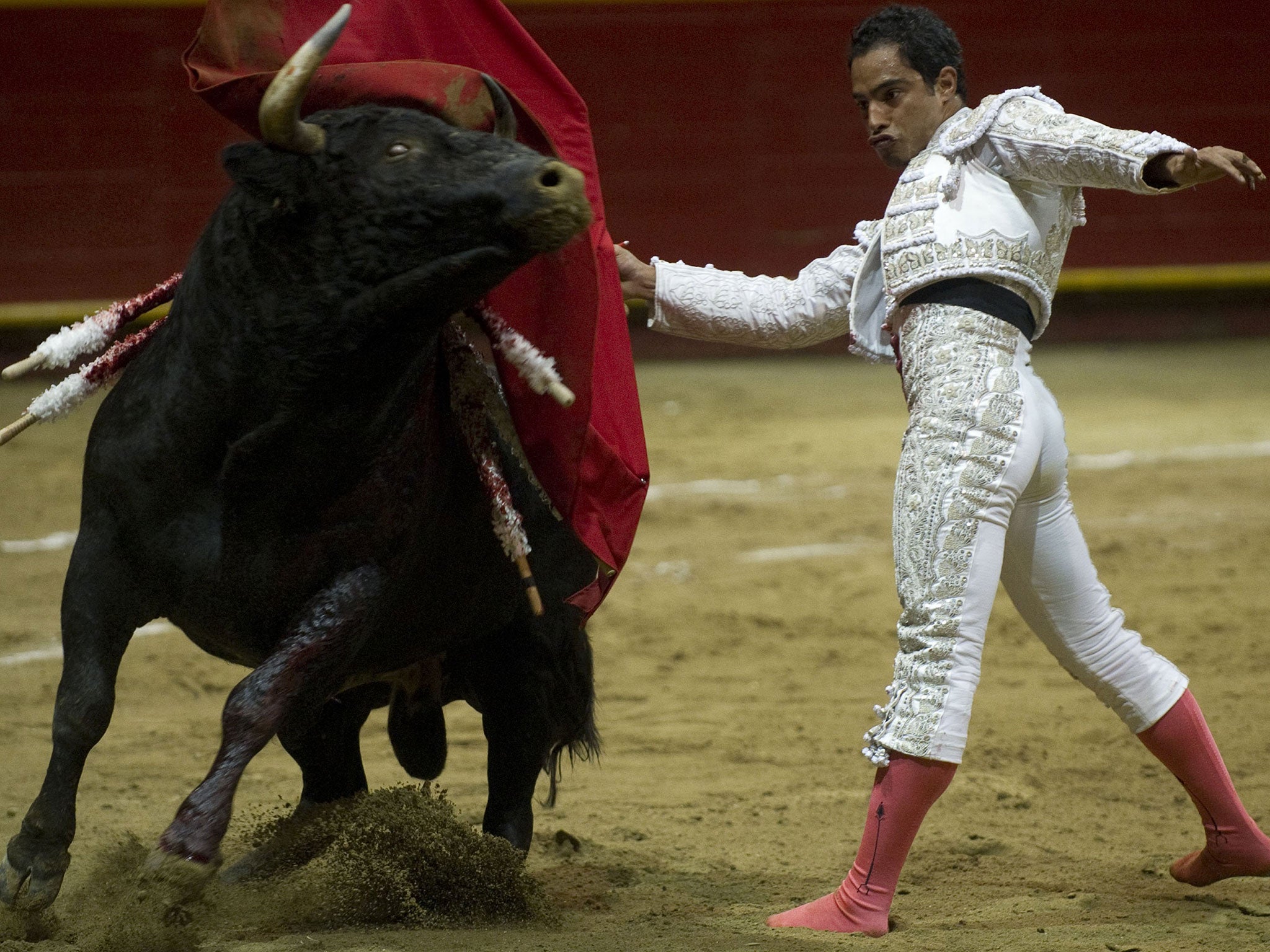Bogota bullfighters: Stop us killing bulls and we’ll kill ourselves
They are on hunger strike demanding that city council rescind ban

Your support helps us to tell the story
From reproductive rights to climate change to Big Tech, The Independent is on the ground when the story is developing. Whether it's investigating the financials of Elon Musk's pro-Trump PAC or producing our latest documentary, 'The A Word', which shines a light on the American women fighting for reproductive rights, we know how important it is to parse out the facts from the messaging.
At such a critical moment in US history, we need reporters on the ground. Your donation allows us to keep sending journalists to speak to both sides of the story.
The Independent is trusted by Americans across the entire political spectrum. And unlike many other quality news outlets, we choose not to lock Americans out of our reporting and analysis with paywalls. We believe quality journalism should be available to everyone, paid for by those who can afford it.
Your support makes all the difference.The matadors of Bogota have gone on hunger strike to press their demands that the city council rescind a ban on bullfighting in Colombia’s capital.
Two years ago Bogota’s Mayor suspended bullfights at the capital’s history-steeped bullring but he is also facing a legal challenge.
The two-week-old protest outside the classically styled arena, Plaza Cultural la Santamaria, comes as the country’s Constitutional Court is expected to rule on an attempt to force the Mayor, Gustavo Petro, to allow the blood sport to resume in the city-owned venue.
One of the eight young matadors, weakened from the liquid-only diet, had to be hospitalised last week, said a comrade, 19-year-old Diego Torres. Torres said he and another hunger striker also might need to be hospitalised shortly. But that would not halt the strike, he said.
Soon after his election in late 2011, Petro announced that la Santamaria would no longer host the ceremonial slaughter of bulls but be devoted exclusively to non-violent entertainment. It has long served as a concert and theatre venue.
“The man has marginalised us,” complained Torres. “Here, everyone looks at us like we’re the scum of the earth.” The apprentices have also lost income. Each earns around £200 per fight.
A former leftist rebel and anti-corruption senator, Mr Petro annulled the contract of the Corporacion Taurina de Bogota, which organises bullfights, after the January-February 2012 season. The company says it has the right to hold bullfights there at least until March 2015.
Few countries remain bullfighting-friendly. It remains popular in Spain, though it is no longer televised there, while the Spanish region of Catalonia banned it and neighbouring Portugal only allows bloodless fights. In the Americas, traditional bullfights remain seasonal fare in Mexico, Venezuela, Peru and Colombia. Ecuador banned them in 2011, only permitting the non-fatal variety.
One of nine members of Colombia’s Constitutional Court, which is deciding the issue, told the Associated Press it will rule in the next week or so on whether Mr Petro violated the constitution in refusing to rent la Santamaria out for bullfighting.
The capital has no other appropriate venue, so aficionados must travel to other towns for the spectacles. That doesn’t sit well with the city’s elite, for whom Sunday afternoon corridas were big social events. Since the 1890s, the fights have drawn Spain’s most celebrated matadors. Colombia currently hosts about 100 bullfights a year.
The judge, who insisted on speaking anonymously to avoid being accused of partiality, said chances were good the court would rule in favour of the Corporacion Taurina.
Its director didn’t respond to repeated phone calls to discuss the hunger strike and the apparently looming court decision.
In a tweet last week, Mr Petro suggested the protesters are not acting alone: “How is it possible that young bullfighters can be ordered to die of hunger? Isn’t that perhaps a crime?”
The matadors, who spend their nights shivering in the tent they raised outside the ring, insist they have no financial backers.
The real criminal, they say, is Mr Petro, a polemical figure who earlier this year successfully fought an attempt by Colombia’s inspector general to unseat him for flouting the law by trying to fire private garbage haulers.
Like bullfighting’s fans, the hunger-striking apprentices consider the sport a noble art, rich in tradition and well worth their personal sacrifice.
One of them, 23-year-old Andres Manrique, said he has already lost 13lb. “I’ll be here until my body gives out,” he said.
AP
Join our commenting forum
Join thought-provoking conversations, follow other Independent readers and see their replies
Comments